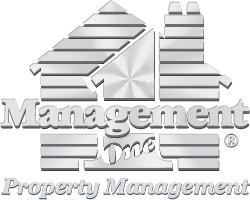So, you’ve decided to hire a property management company. Whether it’s because you no longer have the time to manage, you’ve acquired more properties, or you want someone with a little more experience to handle your property, a property manager can likely help you with your problems.
Gone are the days where you’re forced to do your own maintenance, select your own residents, and handle property accounting. These days there are hundreds of good property management companies to choose from that specialize in managing properties just like yours.
Want the short and sweet version on this blog, check out this video below.
6 Essential Questions
However, not every property management company is the same. Between different prices, philosophies, and services, it can be challenging to narrow down which company is right for you. To help you through that process, we’ve come up with a list of 6 questions you should always ask a property manager. The goal of these questions is to help you figure out which companies will best be able to serve you and take good care of your properties.
1. What involvement do I have as an owner?
2. How often do you do inspections, exteriors, and interior? If they say randomly, that means NEVER, run the other way.
3. How long are your properties typically on the market for rent before they rent?
4. How long will it take to make my property rent ready?
5. Do you have fixed maintenance prices with your contractors? (Critical)
6. How do you screen residents?
Let's look at each question in turn, below.
1. What kind of involvement do I have as an owner and what decisions do I get to make?
All management companies are different. A property manager will serve as the middleman between the landlord and the resident. This relationship works best when you let the property manager have most of the control.
If you’ve managed your own properties before, you might be hesitant to fully let go and let someone else do all the work. However, if you are micromanaging everything the property manager does, it will likely slow down the process.
For example, when a property management company first takes on your property, one of the first things they’ll do is a walkthrough of your property. They’ll inspect the exterior, the front and backyards, and all the rooms. The goal here is to see what aspects of your property might need to be updated or replaced. As the owner, you have the final say on which updates are made as you are the one paying for it.
On the flip side, to get the rent, you want your property has to be able to compete, and sometimes that means spending more on repairs than you thought, but it will pay off for you in the long run as residents will stay longer in most cases. Think of your rental property as a hotel, yes, a hotel. When you own rental property, you have to make a mental shift in thinking from “well it’s just a rental I can do the bare minimum” to “the residents are my guest, and if I start off on the right foot, they will stay much longer.” This a fatal mistake 90% of landlords make, and it costs them in huge vacancies.
Property managers will likely notify you about significant repairs and emergency repairs, as well. Minor fixes usually aren’t worth the extra time it takes to notify you.
2. How often do you do inspections?
First, there are three kinds of inspection exterior, interiors, and pet inspections. Routine inspections are an essential part of proper property management. This ensures that your property manager is monitoring the property and any issues that may arise with it.
A property management company should inspect the property a minimum of once per year. They should have a checklist of what they are looking for, i.e., chipped paint, old water heaters, etc. Annual inspections provide the property managers with the opportunity to catch any unreported maintenance issues or resident-caused damage. Pet damages can be detected with blacklight devices and other tools. It’s best to address these things quickly as letting a problem fester for a mere two extra months can cause a lot of damage.
Monthly exterior inspections keep your residents accountable. Even good residents will drift; let me explain. Raise your hand if you drive over the speed limit. Most of you probably just did, right? Well, does that make you a bad person? No, of course not, you are just “drifting” on your speed. Just about the time you get used to “drifting,” you see the patrolman, and you lift your foot off the gas. Why? Because the patrolman just created accountability. When a management company’s van drives by your rental property every month and takes a picture and looks at several key factors from the outside, they keep your resident accountable, and that means your property is being adequately maintained and appreciates at a higher rate.
The property inspector can also check for any unauthorized pets or residents in the property. If someone did not put down a pet deposit at the start of their lease, but you see obvious pet damage, you can make a note of that.
3. How long are your properties on the market?
Make sure you ask what the company’s vacancy rate is. Property management companies should be tracking their vacancies. If they don’t know this number, it likely means they aren’t keeping track of their data. If you don’t know your numbers in a management company, you don’t know your business.
4. How long will it take to make my property rent-ready?
It’s essential to know how long it will take to get your property ready to put on the market. You might be expecting the property management company to put your house up as soon as they acquire it, but there are a couple of factors that go into this. When a property manager takes on your property, one of the first things they will do is evaluate your property for needed updates and repairs. A typical make-ready (the process to get your property ready for rent) takes roughly 7-17 days, depending on the property.
A good contractor should be able to complete $1000 in work a day, so a $7000 job should take one week to be 100% complete.
Older properties will typically require more updates than modern properties. If your property has a lot of outdated light fixtures, old wallpaper, and peeling paint, it might take a few more days than expected.
While you might want them to speed things up and get the house on the market, it’s best to listen to their recommendations. When it comes to updating your property, they know what will attract and keep residents. After all, beautiful properties typically attract qualified residents. The goal of this question is to establish a timeline and keep expectations realistic.
5. Do you have fixed maintenance prices with your contractors? (Critical)
Most management companies allow contractors to charge whatever they want for a job, stating “their prices, are their prices.” While this is true to a degree, contractors that work with management companies should offer better pricing due to the volume of work provided. Also, be sure to ask for any warranty information on replaced items.
6. How do you screen residents?
Property management companies generally have specific criteria when it comes to screening residents. Most management companies check credit, income verification, rental references. This is standard for most property managers.
To have a low eviction rate, a management company must go much further. Yes, this costs the company money, and its, but critical to you getting a good resident. A seasoned management company will check previous rental history and debt ratios, just like a bank does when they make you a loan. They will run credit as well, but you can have an 800 FICA score on your way to bankruptcy. What management companies want to know is how much money does the resident have going out and coming in? What did the previous landlord say about them? How did they leave the property? Did they get their security deposit back? The answers to these questions will tell you the tale of the tape.
When it comes to the selection of the resident, most property management companies will pick the resident themselves. They usually recommend this because there are several Fair Housing laws that owners are not aware of. If they are responsible for selecting the resident and end up violating one of these laws, it can be an expensive mistake.
Even if you think, “Well, I don’t want to rent my property to college students/a family with kids,” that is against the law. It might seem like a simple thing, but any discrimination is discrimination. It’s best to leave it to the professionals as they likely have written, non-discriminatory rental criteria.
What You Should Do if You Decide to Hire a Property Manager
- Use the handy checklist we’ve provided in this guide, so you ask the right questions, and so you can see how the management companies measure up against each other.
- Get your insurance set up as we have outlined in this guide. If you don’t have time to do this, don’t rent out your property.
- Set up a separate checking savings account and have all your rent go into this account. If you don’t, you will squander the money away and wonder why do I have this rental property check out “Are You Robbing Your Own Piggy Bank” This is critical to have for several reasons as explained in the article
- Focus on the dollar amount of the management fee, not the percentage.
- Talk to at least three references; if they don’t give out references, don’t walk but run the other way.












